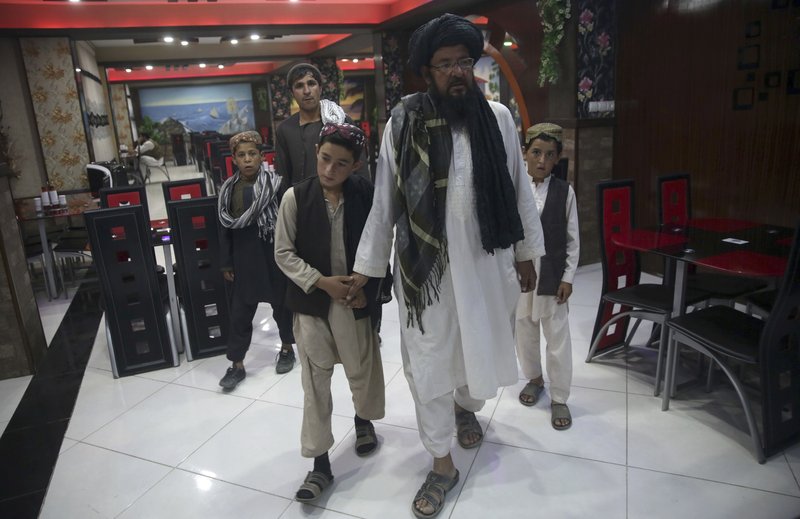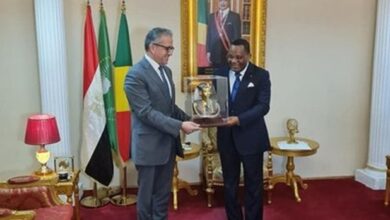Farouk Hosni, one of Egypt's longest serving ministers under former President Hosni Mubarak, defended himself on a talk show Monday, saying he made achievements in advancing the status of Egyptian culture.
Hosni was chosen as culture minister in 1987 and removed from his post in Mubarak's final days as president of the country.
Critics for decades accused him of being responsible for the deterioration of Egyptian cultural production, because of what they alleged was his lack of vision and choices of loyalists to head the country's influential cultural posts.
Moreover, he was criticized for being close to widely maligned first lady Suzanne Mubarak.
In an interview with Al-Hayat satellite channel Monday, Hosni rejected being the former first lady's "pet," saying he was only close to her because they worked together on cultural projects.
"I was not spoiled. I worked alone and I reveled in doing my work. I did not try to get closer to the presidential circle," he said.
Hosni went on to count his achievements in the ministry, saying projects such as Reading for All and the Family Library enriched society and made publishers and printing houses work.
He also said that his relationship with the former president wasn't personal at all.
"We never differed. He saw everything I did as good. He accepted all the projects I suggested," Hosni said.
Hosni said Salafi presidential hopeful Hazem Abu Ismail's ideas "do not fit our time or suit the concept of culture." But he described moderate Islamist and presidential hopeful Abdel Moneim Abouel Fotouh as "a respectable man who understands the meanings of the words 'state' and 'culture.'"
"He is well aware of the history of culture and that culture is Egypt's greatest crown," Hosni said.
Hosni has been critical of the rise of Islamists in the country and raised concerns about their impact on culture. He told the talk show that the state negligence of the citizen has left people in the hands of others who preach that art is a sin.
He said Mubarak alone should not be blamed for the failure of the education system, which has been suffering for dozens of years. He also called for giving greater attention to education as a political priority.
"Our country is rich in several elements, the most important of which are humans. We should develop human capital instead of requesting loans and assistance from outside," Hosni said.
Hosni is known internationally for losing his bid for United Nations Education, Scientific and Cultural Organization (UNESCO) secretary general in 2009 to Bulgaria's Irina Bokova. Hosni's candidacy was perceived locally as a battle for Mubarak. Writers and intellectuals attacked his for his bad record on culture and support for censorship.
However, Hosni told the talk show that he considers himself "a winner, having managed to gain 29 votes even though powers led by the US and Israel were opposed to my bid."
He said Mubarak supported his bid while the former first lady was against it, adding that his relationship with the former first lady "chilled in recent years because she started to have interests other than culture."
Hosni described himself as an "amateur politician."
"I was away from everyone around me. I was offered to join the National Democratic Party and the People's Assembly, but I declined to accept them. In fact, I did not accept to become minister easily."




